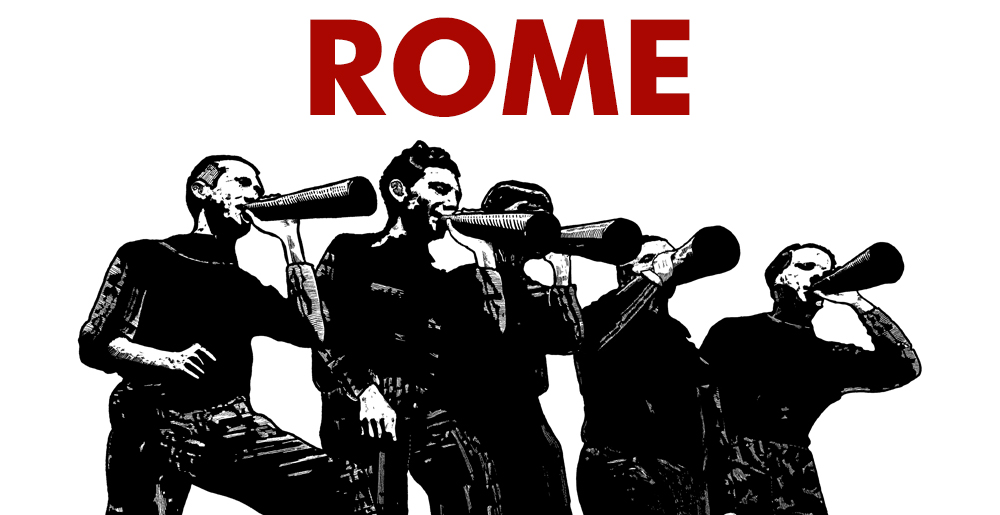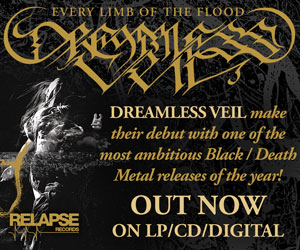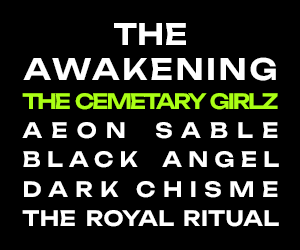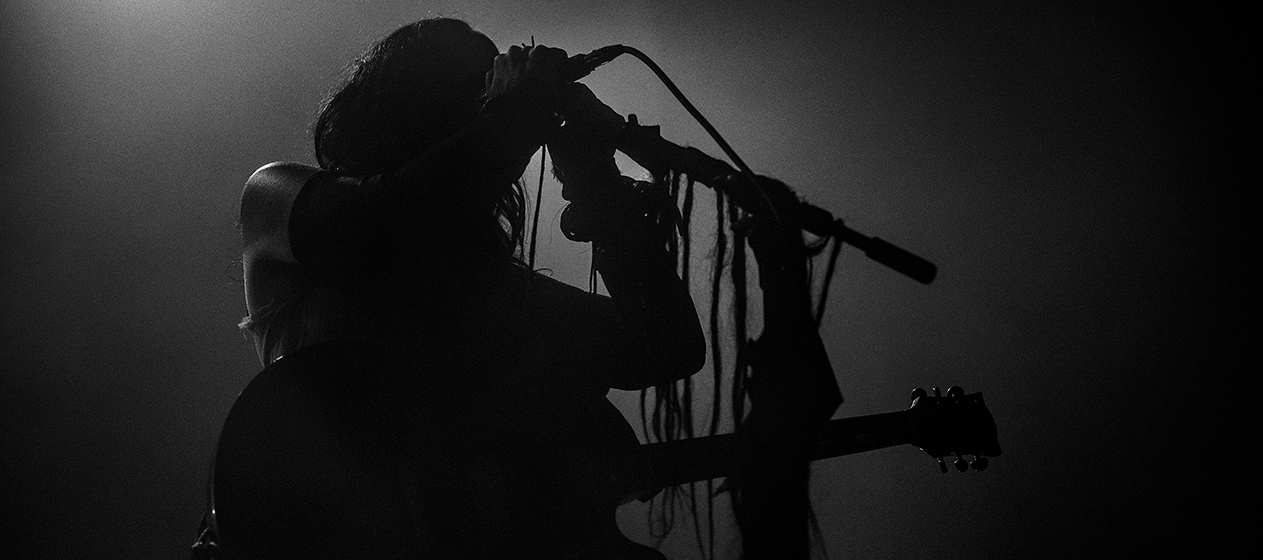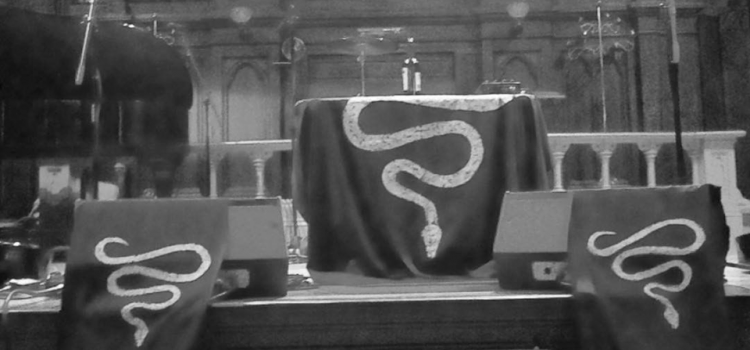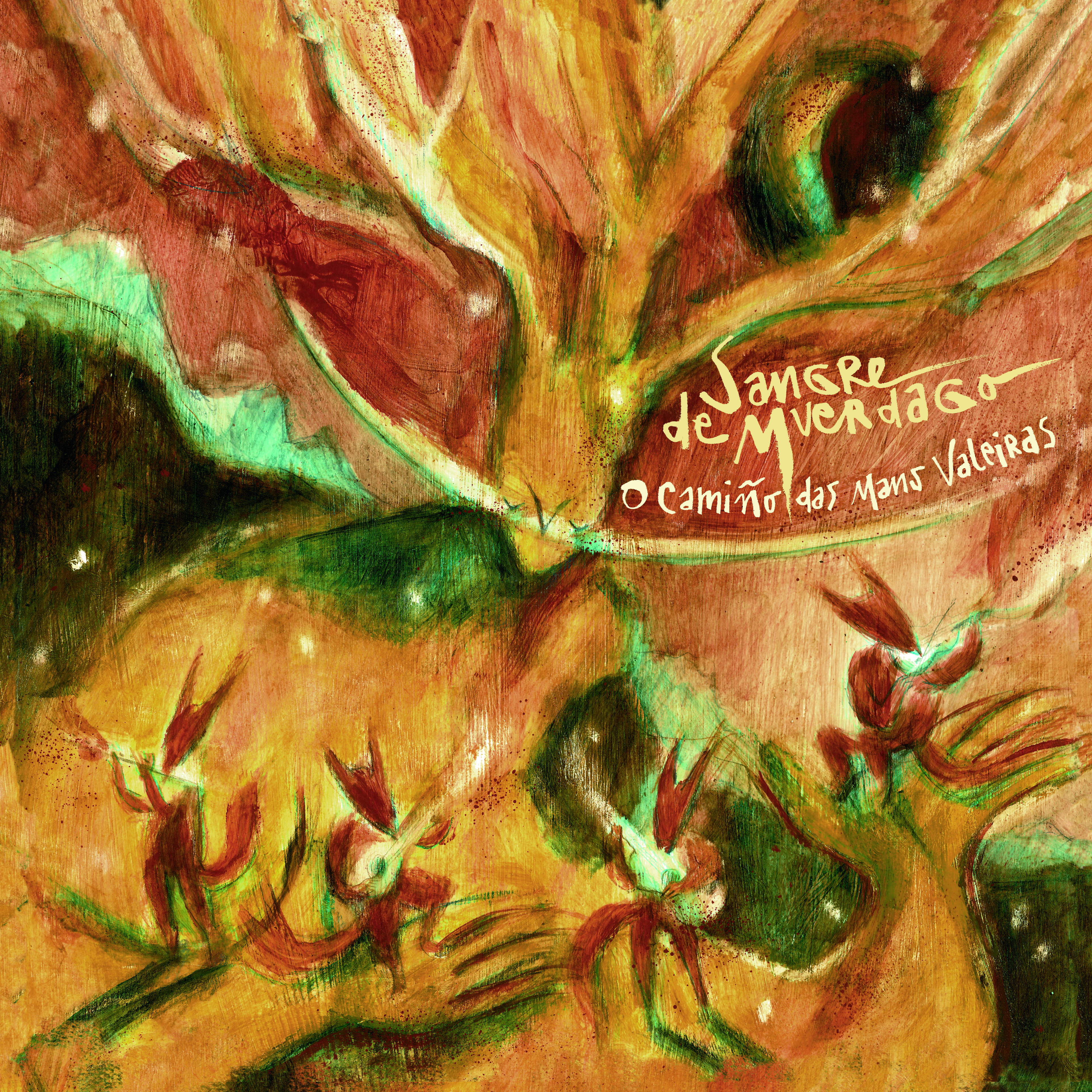Sara Sylvain interviews ROME’s Jerome Reuter
Q:Tell us about ROME as a band.
[In starting ROME]there was no plan– no plan whatsoever. I really just wanted to record the songs that I’d written in this particular style that I thought nobodywas interested in, because the style of music was a niche market. Niche of a niche. I was very aware of the fact that scene was well and truly dead at that time. There was nothing happening there. For all those reasons… when it came to career plans, it was a very bad move to pick that genre.
But it wasn’t a career move, anyway, because I really had no hope whatsoever that it would still be going 13 years later! It’s just… unbelievable that I’m actually sitting here, talking about things that were really not even the dream, you know? Because to me, it was very clear: music is what you love doing and listening to and… that’s going to be an “after work” thing. I was still a student then. And my life hasn’t really changed; I’m still a student now, in a way. I always had these jobs that I would do to pay the rent, but only for a few days a week and that was enough. The rest I would use to go see concerts and then, later, to play concerts. It was really day by day, you know?
I did the demo, I sent it out, and Cold Meat was one of the labels that were interested. It was the most prestigious label to be on because they had a huge, impressive back catalog and I wanted to be a part of that in some small way. But they were on their way out, as well. It was only a few years down the line that they ceased activities. But they put me on the map and things started growing from there.
I think a year after the first record was released, there were offers coming in for shows, which was something I had to get my head around. Like… okay, people want to see this live? How?
But it’s just me! I can’t play three guitars [at once] and I don’t want to be this playback thing, you know, like not play [live]. I don’t want to work with loop pedals and obviously be alone on stage, but still you hear 10 instruments and… [Laughs] I just didn’t want to be that guy, but I was that guy for a while because there was no other way. And so gradually I started adding guys to the “band” and it actually became a band. Now, I think of ROME, live anyway, as a band. Before, it was just my solo project.
[Now, ROME is composed of] mostly old friends as much as possible, because I don’t care about their musicianship, really. That explains some of the sounds! But by now they’re quite good, though. [Laughs]And it’s great, because we actually are having fun and we love doing it. They’re not just guns for hire, you know? They’re my friends. When you’re on tour… I mean, the show is only two hours anda one hour sound check and whatnot, but the rest of the day is just waiting around together. And if you don’t really love the people you travel with, it can be hell. Like, literally hell. I mean we’ve been on tour with bands where I was really glad not to be in that band because there was so much friction and so much attitude. I’m still a loner, I have to be truthful here. But it’s just me and the band. It’s not the band and that bit of the band and that bit of the crew and the techs separate from the musicians, or whatever. No, we’re close knit and of course you gel throughout all this travel and stuff. But yeah, I picked the people more for reasons of friendship. Now, of course, we have a few professionals but they have to stand the test of a tour and see how they are offstage.
So you do enjoy touring?
Yeah, we like being on the road. Touring really depends on a lot of factors. [Traveling] by planes not great since there’s a lot of waiting involved and these days everybody seems to be on strike and so with all the luggage, it’s a lot of waiting, a lot of queuing. We traveled with our own scales [laughs], with all the different airlines having different policies regarding weight and stuff like that. When you’re in a tour van, you just throw it in and climb on top and then off you go… I could do that 24/7 for the rest of the decade because it just totally agrees with me to roll out of bed and be backstage, then just do your thing and roll onto the next town. I love that. Takes away a lot of the stress.
There should be a framed picture of [Ernst Junger] in our dressing room. That’s part of the rider… It just sets the mood. He lived through the whole last century, writing all the time and dealing with all kinds of stuff. He was really like a renaissance man and when I read his stuff, I realize that I know so little. This man lived through the Kaiser Reich and saw that crumble.He lived through the Weimar Republic, the Nazi regime, and the formation of the new German society. He just has this distance. When you see all the things crumble again and again, you kind of develop this outlook that’s sort of above the rest. I just love his perspective and the way he writes about things. It’s just so rich. Actually, my heroesare more authors than musicians, because the type of career a musician can have has only been possible in the last 50 years or so.
What places stand out to you from your travels?
I guess I’ve always loved hotels. I think it was Leonard Cohen who described them as “a sanctuary” of temporary kindness. It’s like a safe place [when you’re] constantly running from stuff. The hotel is like a haven and… yeah, I feel the same way. Maybe it’s [due to] this romantic view of writers. I holed up for two weeks once at the Hotel Continental Saigon in Vietnam just because I love Graham Greene.
When we were in Moscow, I actually had a day off to go and have a look at the Red Square and get some glimpses of things I’d wanted to see. Today, we’ve been to Washington, DC. We’re not here in these parts often; Baltimore is a bit off the grid for the regular kind of tours we do. So, we went to the monuments and the capital and all that.
Every tour in Italy we come back with a couple of extra belly fat rolls. With every meal they come up with something extra delicious. I have many friends in Italy so they all invite you to their mom’s and they do the pasta the traditional way of their family and it’s… Yeah, I love that. I’m a little bit of a foodie.
We’ve played Jerusalem as well, which was interesting. It was the sabbath though, so there was nobody there except the 50 people who traveled to Jerusalem from Tel Aviv. So that’s why we’re playing Tel Aviv this time. Jerusalem is a religious city; they are not used to having that sort of night life. Certainly not in our niche. So, we’ll play Tel Aviv.
Heidelberg is, like, not even traveling when I go there. It’s just so beautiful. I lived right smack in the middle of the old parts and still have friends there. But Germany is full of super-nice small towns, like small cities, that are really beautiful and that you’ve heard about, but maybe have never got around to going there.
I love being there in France; it’s very beautiful. But I think if I were to move anywhere it would be Italy. I would also move to Scandinavia, if I could afford it. Italy is much better in that respect, so I guess Northern Italy would be it, probably.
There’s also a lot of places that I haven’t seen. Lots of parts of Portugal, for example, I haven’t visited and I know we’ll have to go there, but it’s just never happened. Or so many other small cities that you pass by where you read the UNESCO signs next to the roads where they tell you about each castle, and you think “Oh, next time! Right now we’re on the clock.” At some point I will do a cultural tour where I’ll play just every second day and the off day will be for things like that. But we’re not there just yet. That’s also one of those things that got us into the living room stuff, since you would actually get to see more.
Do you do anything to keep your voice in shape?
No. I’m trying to quit smoking because that’s really bad, I’ve been told…. [Laughs] Otherwise… I don’t really sing. It’s like this croonish-scream? [Laughs] Like, it’s part crooner, part… shouting, I guess? I mean I know people whosing and I think they do stuff, but I don’t really know what. I’m not under the impression that what I do is, like, actual singing. I mean, there’s moments in a few songs where it could be… interpreted as singing, but for the most part it’s just like… slowwwly reading stuff. [Laughs] I have to watch outto what I eat and not to go to bed late because when you’re tired you hear it. SoI try to avoid too much drinking and partying.
Do you enjoy being on stage?
Yeah, yeah, yeah. It’s difficult because you have to be this other person. People expect and you expect yourself to be this other person, in some regard. But yeah, I really enjoy it, absolutely. You put on your armor and you go out there because you can’t be all vulnerable and stuff. That’s not going to help you.You have to be some sort of exhibitionist to write all these songs and release them. But since I’ve recorded them and released them, well, I’d better bloody sing them. Nobody forces me to release anything. It’s still very weird, especially when it’s far away. Like here [in Baltimore], I’m hoping there’s going to be people!
You travel to Moscow and no label has actual control over what’s being downloaded and stuff, so you don’t have any clear vision of what the market situation is. Some booker wants to book us, so I guess they made their research. They must think and believe that it’s worthwhile and they’re not going to lose money, so that’s already a good sign. When you show up and there’s hundreds of people there in a city that you’ve never visited in and the way that they are present, you realize they actually know the music. They’ve
known for a while because they know the oldest songs as well and there’s lots of [people] and… It’s weird! It’s a completely different culture. There is hardly any direct link from you to them because they have their own social media, they have their own propaganda machine, as we have ours, and they tell a different side of the story.
That’s something that’s really rewarding about the whole enterprise of being a touring musician is that you can actually talk to people on the ground and get a really insightful view from the people there. When you’re a musician, it feels like they share so much with you because they listen to you. They have this different approach [and] really open up in a different way because first of all, you’re very close to them but at the same time you’re a stranger.
So, it’s like the stranger at the hotel bar.You tell him everything, right? Because you’re never going to see him again and you’re drunk anyways. And it’s so with the musician. He’s a stranger, he’ll be gone tomorrow, but at same time he’s close to your heart because you know his work, you’re sure he wrote that song for you. That’s great; it’s a wonderful thing. And as a musician, it’s really insightful what you can experience that way.
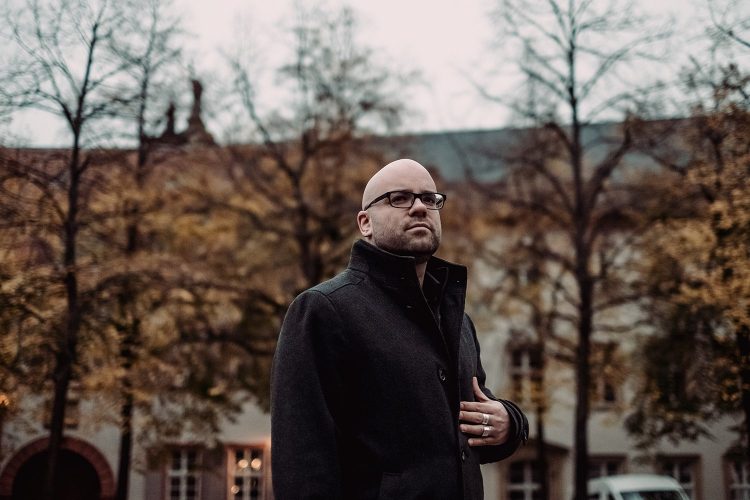
It seems like you get a lot of satisfaction from making music. What challenges do you see?
For a long time, the music industry was geared up to receive 12 new songs every two years. That’s what it could digest and market. And I’ve always gone against the grain because I’m just like, “How many songs can you take a month?” I would just release stuff when I thought it was ready and done and I wanted to move on to the next canvas. For that to happen it had to be released, [and] off my plate. The label has to come up with excuses to release it because it’s always too soon and people complain “Ah, you released 10 albums already,” It doesn’t make sense financially.Careerwise, it’s too much. You can’t market it.
Luckily, my label doesn’t care! They say “Well, okay. We’ll just feed the bunch that are into you and hope they’re not fed up.” Of course, you can do too much. And some people feel I do too much. But they can listen to the rest when I’m dead. That’s what I always say. I’m doing it for me because I love doing it. It’s fun and I’m interested in the things that I write about. That’s why they come into being. Then I have to get them off my plate and I release it. If you don’t buy it, well maybe at some point the label will kick me off because they can’t market it anymore, but that’s unimportant to me. I want it to be great. I want to make a great album [and] assemble a great collection of songs that work with each other and make sense. And that hopefully are nice to sing along to it in some moments in time.
When ROME started becoming sort of professional years and years ago, I was talking to people who were also in bands that had been around 10 years longer than me to get a feel for what their life’s like, what’s the financial situation like, can you survive? The calculations we made then… none of them work because in the meantime, the whole thing collapsed. Nobody’s buying stuff anymore; you have to play live. So I’m happy I like it [laughs], otherwise I probably wouldn’t be doing it.
It’s a business and it’s about money. But if I don’t like calling someone up to ask about a specific tour, I stop working with them because… I can get a regular joband work with people I don’t like, you know? In the end, it’s the same for [everyone in the industry] because they have to make a living as well, but they pick and choose according to how the bands are. Like, is it difficult to reach them, are they okay with specific things they have to do as a band, and all that. So, you work your way through things together.
I think everybody is struggling right now [with things] they’re not really admitting to. I just realize it because we got a few great contracts with good agencies. Although we’re quite small in the biggest scheme of things– you know, I’m not kidding myself– they were very open because they saw that we have a fan base and we have [it] because I don’t really care about certain things. People sort of like that and I’m really glad I made those choices, because now I realize that they were right.
When [material is] all business to people… that’s somebody’s work, you know? If someone’s bleeding his heart out there but an exec’s like “CDs or steaks or whatever– it’s the same thing,” it really disgusts me. I made a lucky pick with the label I’m on. They respect the way I think and I guess I’m sort of a pet project because they have other projects that make them more reliable money.
Whereas, sometimes things don’t work out, but they see that I’m not discouraged
[and that]
I just keep going. They know I’m working on something else already and there’s always something in the pipeline. The most important thing these days is that continuity is there. You’re not just going to make a record and make it big. It’s a life choice; that’s how I see it anyway. Then of course you have this other business, the pop business. That’s completely separate from what we do.
I try to work so that I know there’s money coming in at some point. When you write and release something, you don’t get money right away. It’s over the next year or two that the royalties slowly come dropping in. So as long as you keep the ball rolling, you’ll be fine. It’s like sharks, you have to keep moving or you don’t eat. I think about the business things only in regards to the body of work that I’m working on. I have a vision of what I want to achieve in some way. Then again, I’ve studied Zen so I don’t have to achieve anything [Laughs]. I have such tremendous respect for several artists because they created something and during the time they made it,life really sucked for them. They wouldn’t have done the things they did in the way that they did, had they had success. So, I feel very successful because I’m still touring, I’m still here; people are interested.
[With Trisol], meetings are fun. Usually I have an idea for something I want to do and [we talk] very early on because I know [they aren’t]gonna try and persuade me to do otherwise. It’s just like, “Yeah, you’re the artist, you come up with this stuff, and I’ll try to find the packaging.” [Laughs] And of course, sometimes– or a lot of times– they sort of say, “Sure, we can do it that way. May I propose [an alternative] because then we might actually break even.” [Laughs]But other than that, it’s just total artistic freedom and that’s how it should be. Since we get along so well, it’s a friendship by now.It’s not just business.
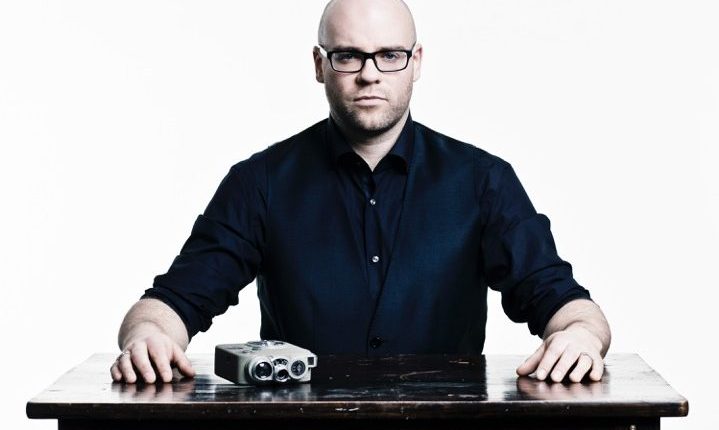
Can you speak to ROME’s use of language?
It’s really a privilege to grow up in Luxembourg for a variety of reasons and one of them is that we are forced to learn all these languages. Which, when you’re young, really sucks. When you’re a pupil, you don’t want to go to school to begin with. But now I see the treasure of it all. To us, we have our mother tongue which nobody speaks except us and it’s not really taught and there’s some literature, culture, art made in that language, but the potential public is like 400,000 people and in the age group that you want to target, it’s like 10,000 or whatever? So, it’s all good fun, but you know you have to learn these other languages.
So, it was a natural thing for me to not translate anything, everything that I found. And yeah, I liked the sound of having some Italian spoken as samples or whatever. And, certainly, on the first three or four albums, I’ve used a lot of different languages simultaneously, whereas the official tongue was always Englishand I kept it that way throughout most of what I did. But the little things here and there would be in different languages and most of them were friendsreading something out for me.Language transports the whole culture. In pretty much every word, there’s so much tradition in there. The whole tradition of that particular tribe or an ensemble of tribes is in that language. And… you cannot translate all that. You learn your way around the world with these words, you know?
In that regard, languages are extremely interesting. I see that some people really like what I do because of that. Because it’s not just the song, not just the lyrics. It tries to be so much more. I’m always looking for some… some richness in the experience because what I liked about the new folk/industrial/avant-garde thing that I got into and inspired me to do ROME, was that when you listen to some of this stuff, the first thing you do is go to a bookstore and buy these authors that inspired the musical artists and dig for stuff that you get into. I think music should be a shopping list for books. Then, through that you build your own world around a particular band.
You’ve written about “modern forlornness.” Do you see people combating it? Are you doing that with your work?
I guess I am.
Well, the “forlornness” thing… I guess every generation feels like that. They find different names and tags for it, but it always boils down to the same thing: feeling out of place or not represented or… underfed. Certainly, our modern age breeds a particular brand of forlornness, in pretty much every respect. Something I’m more interested in now is to find the world beyond the modern world. We live in this bubble and even if you’re interested in history and philosophy and whatnot, it’s always seen from the here and now with what we’ve apparently “learned” in the last century… obviously, we haven’t learned. It’s always like this… this feeling that we’re more clever than our forefathers, which is really not true. I think by now people should have noticed in Europe and elsewhere.
For the time being, I find the notion quite interesting to revert to this specific heritage and tradition in the sense that there was a world before that we’ve sort of pushed back. [That world] was not all bad… it was not all uninspired, unenlightened barbarians. The whole notion of spirituality is something I was never interested in, but it came to me via my travels in Vietnam. The record “Hall of Thatch” is a bit about that [and I] started really getting into Zen and Buddhism, in general. That sort of opened a door for me to discover my own heritage, spiritually. I’m still at the very early stages of that. I found a few friends who are into the same thing, who wrote books about it. But the spiritual quest… You know, when people say spiritual in Europe, they think, “Oh, you went to Jesus now?”Nah. Sure, there are those guys. But there’s other things.
Since I’m obviously into European history and stuff, that’s such an important foundation of so much of our culture that has been denigrated for so long. Lots of it obviously gained this bad reputation because of the Nazis, the whole Second World War, and the advent of pop culture. It just pushed away so many things that could make things a lot easier for us these days.I’m not talking about escapism via religion or anything, but just to be spiritually attached to the things around us. I can’t think of any other way to fight this global problem of what we’re doing to our planet. If we are to revert the process in some way, it could only be via spiritual path.
It’s a touchy subject matter, because I never thought of myself as a religious or spiritual person at all. But, you grow older and you learn to open your mind to some notions that you may have dismissed up until then. Spirituality was corny, you knew it was pure show and just a weird tradition that [people] didn’t really get. They were just doing it because Auntie told them to. There was no actual, spiritual foundation to it. So, getting past that is the first big exercise. A friend called Aki Cederberg wrote a book called “Journeys in the Kali Yuga” and it’s about his travels in India that made him realize this quest for spirituality isjust fun and games if it’s not really your heritage and your culture that you try to discover and breathe in.Otherwise, you will always be a “fake” in a way, for lack of a better word.
So he was one of the people who got me onto that path. He’s from Finland. So, it’s a strong heritage. They’re tough fuckers. But it ties into the whole idea of tradition and I was trying to discover that. Obviously, it’s through the eyes of a modern man and there’s a lot of tacky crap around. You have to find your way through to whatever truth there is in there. That’s going to take some work and some reading. Especially in the arts– it’s been done many times, you know? A lot of bands exploring “origins” and whatnot. But yeah, I have my own kind of vision of what I want to get at.
Some of my [sources include] Julius Caesar, Tacitus, Sallust, Herodotus… [Pauses] I have to translate the names from the Latin and the Germanic. You have the Iliad, the Eddas, all the myths and mythologies. I read all that… Or re-read, it because I read it years and years ago, but not with the same incentive? You should relive your life a couple of times within a lifetime, I guess. The spiritual thing is something very new to me. I’ve always seen myself as a very utilitarian kind of guy. Like, just go for it and don’t look back. Spirituality was forpussies. [Laughs] That’s what the world teaches us in many respects: it’s just escapism, it’s got nothing to do with the actual world. The scientific way of looking at the world is helping us in certain aspects. But some stuff just doesn’t make sense if you explain it in a scientific way; you’d never really answer the question anyway, because it wasn’t about that.
You mentioned you’re reading some Irish myths?
Yeah, just a Penguin Classic Collection of early Irish myths and sagas. I’min about 30 pages or so. I’ve read two of the longer sagas and they’re really, really great. It’s like I’m being transported back to the time when I was probably six and my dad would read these old sagas to us, we had this classic[Gustav] Schwab “Die Sagen des KlassischenAltertums”–“The Sagas of Classical Antiquity” would be the translated name. It had some of the Roman myths and some of the Greek and you realize at some point, “Oh, that was actually important for your whole development.” So [I’m] sort of back now into that world, the world of heroes and sorcerers.
Of course, in between then and now there’s been loads of different translations, manuscripts have been lost, and [with] some sagas they only found the first couple of pages and the last. Sure, [we’ll] fill in the dots. There’s a lot of guessing involved too with some of the handwriting and wrong translations and, in the end, it’s all the same story because, well, in Persia they had the same idea and same God, but they translated it and it’s really interesting how the same kind of tradition was translated. So it makes you rethink. Nothing is fixed, obviously. It’s interesting to see how it evolved in the different cultures.
Have you been interested in mythology throughout your life?
No, not really. That was the “old” and it was always just corny. You’d see people with Thor’s hammer or some runes and it was like “Pfft, it
doesn’t say anything to me now.” So much happened between then and now! How can you relate to it? But now, I kind of rethink that because especially with those cults and that spirituality, the gods are really representations of human aspects, of the human condition. So it’s not the old guy with a beard
telling you what to do. It’s more interesting because it’s closer to the actual life. It’s not a gospel, a doctrine, or whatever.
Gods do messed up stuff, too. Actually, they only do that. They’re not faithful and they’re not really role models… but in some regard they are. I’m rediscovering it all. I have the basic knowledge but it’s more like whatever you had at school. If you read modern classics, you’re supposed to know the old ones, right? They all shared these same myths. They called them differently, but they had the same gods, in a way. It was because of politics that Christianity rose. They were very clever about it.
It’s like, capitalism, you know? It’s what you end up with. It just so happened; it never won. It just remained. It schemed its way into power. Now it’s how we trade in everything. It’s all about price, not value. And it’s really, really hard to unlock that process of thinking because we’re just so used to thinking along those lines [in] how we organize our life, our day, the choices we make. At some moments in your life, it just hits you and there’s no way around it. Then you realize we actually have no decent way of coping with this. So, maybe I’m hoping to find some different answers in what the ancestors wrote down. It might be a more balanced way of looking at the world because they didn’t really set out to change it [and] control everything.
How does inspiration work for you?
I sort of always have one major “plate” in my kitchen. I work on at two… or three… records at a time. I have these ideas, like “basic themes”, where I think there’s a record in there and I know for sure an element, a band, a decade could be inspiring, but it takes time to assemble stuff. So it’s always on the back burner. I have these notebooks and I keep track of all the ideas that go into that category. At some point it will either die away and prove itself not worthy of an album, combine with another album, or be interesting enough to grab me fully.
So there’s always side things. There’s this one thing I’m working on and when I’m working and assembling, usually things fall by the wayside and I’ll go, “Oh, this is actually great.” It doesn’t fit, but I have to take a note [because it’s] good and I have a great idea for it, but not on this record.
So I try to keep track of all these different ideas. [Eventually], you have this whole huge bag that you can pull stuff out of and say, “Oh, actually this comes in handy now.” So, that’s how I work. It’s a way of working that has proven itself again and again for me, that bag of tricks. Then comes the moment when you’re inspired and the muse comes in and kicks you or kisses you.
I don’t sit around and wait for the muse. The muse will come; you have to work for it. But when she comes, she’s usually quite generous and gives you a few at a time. Some albums I wrote in a few days, the whole thing. Like Hell Money. Some consider it my worst, but I really like it. It came like a gut reaction to a specific thing that was going on in my life. I was [also] reading a lot of William Burroughs at the time and it all just clicked and seemed to make sense. Then there’s albums like “Passage Through Rhodesia”, which take years! Years and years. It should have been the fourth record, [released] in 2009, instead of “Flowers”. [But] things turned out fine. That was actually the next record when I was working on “Masse Mench”.
I hadn’t found the right voice, so [Rhodesia] was just a bunch of songs. It sort of had this theme in common. I read this book, “When a Crocodile Eats the Sun” or something like that. So there’s also a line in one song that was the title of that book, I believe. There was just this perspective of this white kid growing up there and it was just the perfect generational gap in the history and [finding] that perspective was, “Oh, okay! It makes sense now for me to be singing about this.” I have to be able to sell this and really relate to it in an honest way. By then, I had met a few people from there [and had] talked to them and then things fell into place, but it was six years later or something when it was released. So yeah, sometimes things just need more time.
I’m not just writing to release a record every year, it’s just [that] when it happens, it happens. So far it’s happened every year, but I’m not on a schedule, [like] “Oh, it’s January. I have to go and record.” For months and months I don’t get anything done. No song will really mature [or] come into being properly. Like it’s okay, but it’s not good. I need to be a fan of the song in order to finish it and if it’s not, what’s the point?So, sometimes you just write stuff that’s not good or sometimes you don’t write it all for a long time and then suddenly it all happens. And you think, “Voila! It’s so easy!” That’s the question I get asked the most: How do you write so much? Where I feel [that] I don’t. Most of it is not me. I just live by the credo that “Creativity is the art of hiding your sources.” So, I think I’ve mastered the art of hiding my sources. [Laughs] Who was it that said, “Good artists borrow and great artists steal.” Was it Picasso or someone? Or maybe it was attributed to Picasso, but it was stolen! [Laughs]
Can you talk a little bit aboutyour new album, “Le Cenari di Heliodoro”?
There’s never a good time for me to talk about an album. [Laughs] When I’m working on it I don’t want to reveal anything because I don’t know how it’s really gonna turn out. Once it’s done I’m still too much “in it” that I don’t have a clear picture of the thing. Then by the time I start something new, I’ve sort of forgot! The creative job’s been done a long, long time ago. I was inspired by some Italian authors and just the Italian experience. It’s a country that’s been very close to my heart forever. We have a huge Italian community in Luxembourg; it’s just always been part of our culture where I’m from. And it’s a country we love touring in. It’s sort of a move backwards for us, but it has a different freshness to it as well. It’s very ROME, I guess, but with a more punky-folk approach in a way. So it’s very straightforward in many regards but with a huge, new folk sampling background backdrop.
Do you have any long-term goals?
[ROME] is a long-term goal. I’ve always said that I want to create a body of work. I guess, by now I’ve done that because there’s a lot of records out there for those who care. So, I would like to continue doing what I do. That would be the long-term goal: just to keep going, like Lemmy but without the speed. [Laughs] He was a force of nature. How can you survive that long on that diet? Hats off!
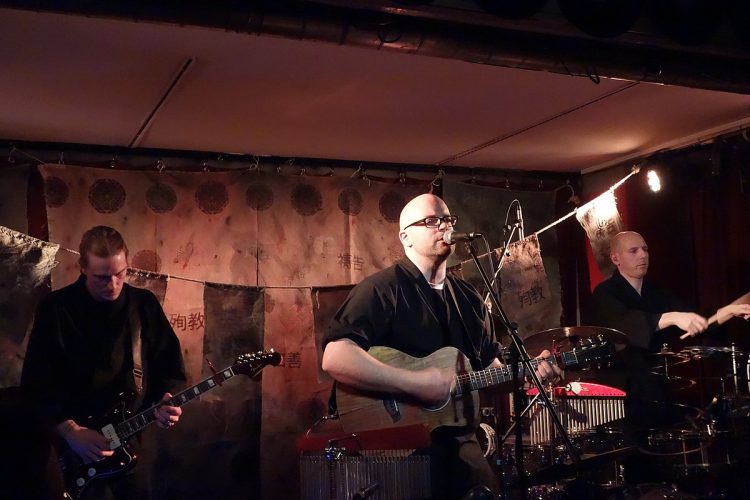
Do you think most people would truly “rather be entertained than enlightened” as you say on Die Aesthetik’s “To Each His Storm”?
Well, I don’t think they make the decision, but that’s what it comes down to. A lot of people don’t have the time to think about those things. They have to work two jobs to make ends meet. So, philosophy is a luxury.If you have a regular job, do you want to read philosophy when you come back home? I don’t know; I wouldn’t know. [Laughs] It’s just a general observation, really. It’s not about this particular society. It’s always been like that, I guess.
So, then, how do you find new bits of entertainment?
Friends! Even if I don’t want to, I do hang out with people after shows even though I’m thoroughly antisocial.
When it comes to books, they keep multiplying by themselves. If I like an author, I want to know everything about him, too. So even just the Wikipedia page suggests at least 20 other books and maybe two other authors, and there you go. And then, of course, I also often go by subject matter. So, endless lists of stuff you can check out. Literature is just a neverending thing. I’ve thousands of books that I haven’t read. In music… I’m hard to persuade. I always end up with guys who have a body of work [and] old, grumpy men. [Laughs] Sometimes, there’s true diamonds in there. But I have a very short list of people I listen to still. I try to discover new things, but it’s always just a fling. It always ends up being Brell and Townes van Zandt and Cohen, Cash, Cave. I loved Tom Waits when I was a teenager, he really shook my world.
It’s like every five years or so I discover someone who really rocks my world. And I want to be that guy. Then I am that guy for a few months, then I sober up, and say “Okay, you can’t be that guy.” [Laughs] I love when that happens because it’s like falling in love again. It’s why you start out with all of this. You grow into somewhat of a cynic, I guess, so that’s why it’s so nice to fall in love again. It doesn’t happen all that often. But you know, at my age when it happens, it’s for life. All these bands or artists that I’ve discovered every five years? They’re still with me, still on my MP3 player. It’s this old thing, it’s broken and I can’t change the playlist anymore. It’s ridiculous. But it’s okay, all my old friends are on there.
From your European perspective, have you any thoughts on America’s situation right now?
We have a lot of things in common. Obviously, a common heritage up to a point, but we’re losing ours just as quickly as you lost yours. There’s one song on [Le Cenari di Heliodoro] actually, called The West Knows Best, which is sort of about the American-European relation, in a way. It’s a very contradictory song. It doesn’t really make sense because it’s says one thing and then it says another thing. The slogan The West Knows Best: is that tongue in cheek only? Or just a little bit? It’s about how we used to love America for a variety of reasons and how some of us don’t anymore. It’s not about Trump or anything, but it is, also. But it’s not just about him.
[Part of today’s] problem is there’s no discussion and that’s the end of everything. I mean, prove the other side wrong, fine, but let him speak and let him make his point. At the same time, the media is sort of distorting ways because they want to avoid civil strife. So they have their reasons why they lie to us because they don’t want to fight fire with fire. But that’s the problem, you really don’t know. All you know is that there is a problem and it’s not being talked about honestly. So either they’re just fooling us… or you don’t know the size of things. If people think they’re in the dark, they’re going to make stupid decisions.
Trump is just one piece of the puzzle and I’m not going to get into the American politics, but we go through the same things in Europe, where everything is put into question and we have to come up with fresh answers. Some of the answers are obvious to some people, but with the past we have… it’s thin ice. The second world war was so brutal in so many respects; the whole continent was nearly destroyed. We live in the ruins of whatever is left of that, and both worlds have disappeared in a way. We are sort of realizing more and more that we don’t know who we are. We have this huge heritage, but we don’t really cultivate it. We don’t really teach it. It’s all there, but those things are passed on by teachers to pupils, but the idea of having a master who teaches you things is repulsive these days, which is sad because a lot of things get lost. What was once a master is now lowering himself to also being a pupil and talking on the same level, which doesn’t make any sense because it’s just regressing.
We’d have to see to it that we save whatever is left and in a globalized world that becomes harder and harder because we’re not making the decisions anymore as a people or as a culture. It’s a few of our guys with a few of your guys and a few of those guys.It’s just the guys with the money, the guys who know how to scheme. They don’t care. They don’t have roots anywhere. They think they’re above roots, you know? Then everything turns to this “brine.” There aren’t any true plants anymore, it’s just uprooted stuff that’s just being tossed from one end to the other. But that’s what the arts are for: to share with people and find some acceptance. That’s what I think I’m doing anyway. I’m certainly doing it for myself. I realize I have a very bleak outlook on things, but I’m a very happy person actually.
Do you feel like larger scale, political involvement can help to preserve culture or do you think that only at the most basic, interpersonal level can it continue to be sustained?
Well, I think neither because art for art’s sake is crap. You can’t separate whatever’s going on in your social media or in your culture and just print pretty pictures and think of it as art. It doesn’t work that way. Everything’s a statement in art. The way you perform a love song is also a statement, either politically or whatever. I don’t want to be political in a regular way or support specific causes or anything. It’s not interesting and you sell your stuff cheap. At the same time, I realize that a lot of what I do is really political, if you think about it. I think that’s how it should be because I’m interested in those things and… I can’t sing a love song without putting it in some political setting, I guess! It makes things just brighter and more dramatic.
Generally, when you want to be an artist, you think about “What is art?” Although there’s a lot of ugliness in my work, it’s there on purpose, and it’s there for a reason. It’s always in relation to something else. There’s always a beauty that’s alluded to. When I was very young, I was intrigued by all the modernists, the futurists, and especially the expressionists. Later on, [I discovered] the Dadaists. I never quite understood some of the modern art. I had this pop art book and I found that quite interesting. But in the end, I realize it’s so hollow and so… it’s just ugliness, really. It doesn’t achieve anything. It doesn’t help anyone. And so is modern architecture, which is why it’s being torn down and it’s falling apart before it’s even been used. People like old buildings, even if they had a different– especially if they had a different use before. The buildings were built the way they were to look beautiful. And with beautiful buildings you want to be in it. You can put it to a different use and it’s still going to be beautiful. Whereas in modern architecture…
Some museums are nice, because they allow for a lot of light to be able to see the things in there.So, there’s always exceptions. Of course, it’s all about money and function over form. I like to think my little way of helping is to go against that, because I’m not trying to please anyone or to be sexy for anyone. I just like my work. I want it to have value and meaning. I don’t consider myself to be important at all. I hope that some people will discover what I did, because that’s how I got started: through the works of other people. It’s like a baton you pass on, in its own sort of tradition. And that’s where I see myself, just trying to help some elements of our culture survive. At the same time, I’m very modern in it because, in the end, it’s also just pop music. I’m not a classical arranger or whatever. I do what I can. That’s the wish I have, my general outlook when it’s not too bleak. That’s the light.
